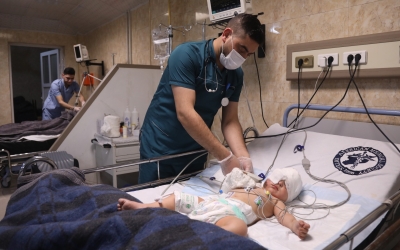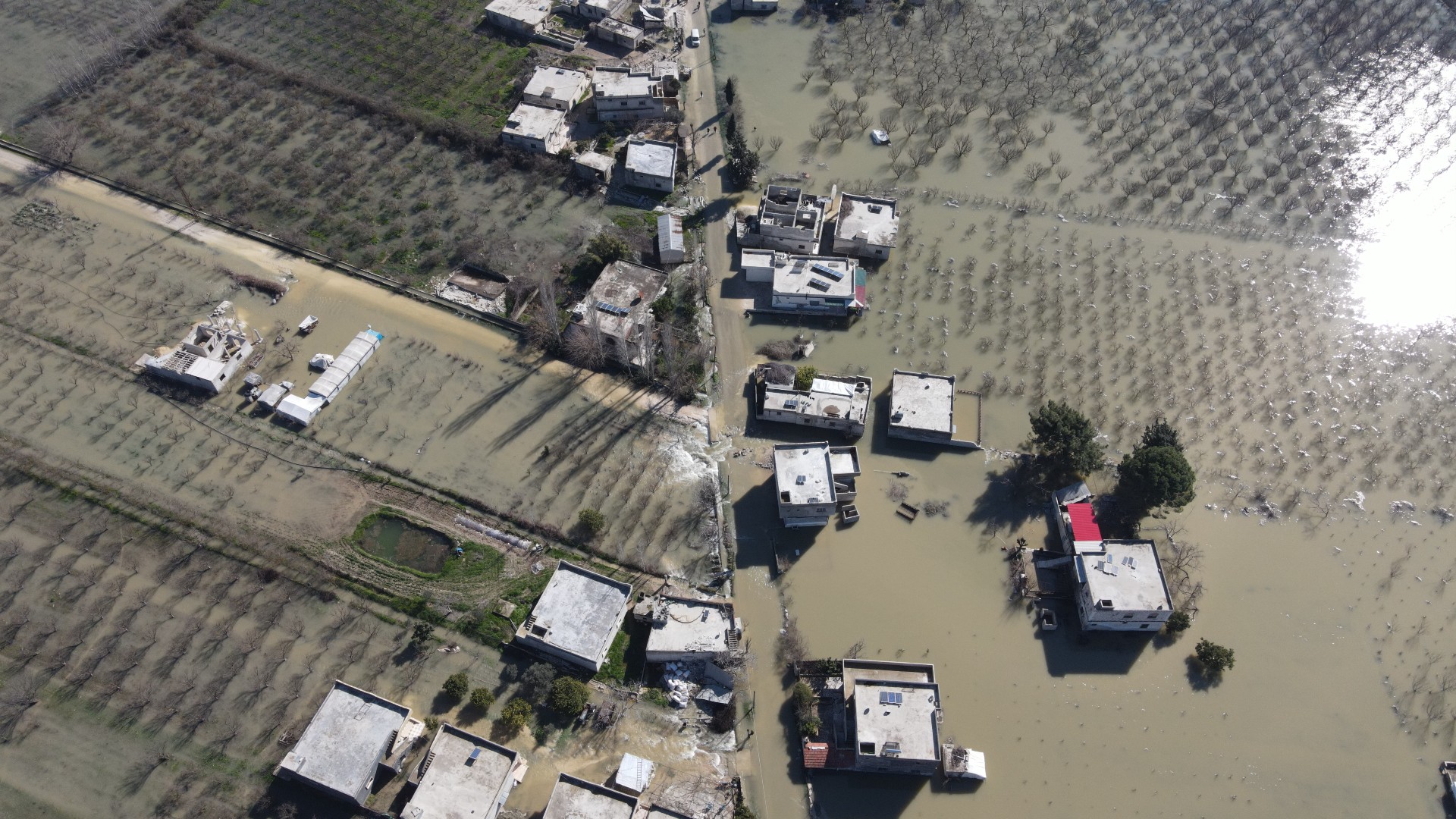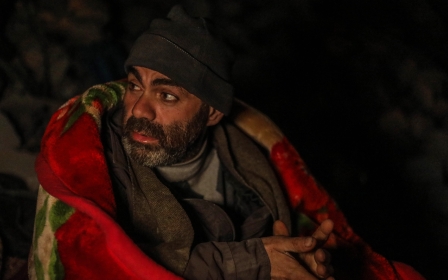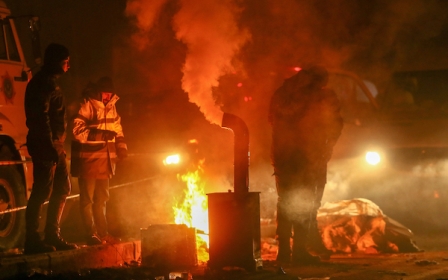Syria earthquake: Flooding wipes out vital farmland after dam bursts its banks
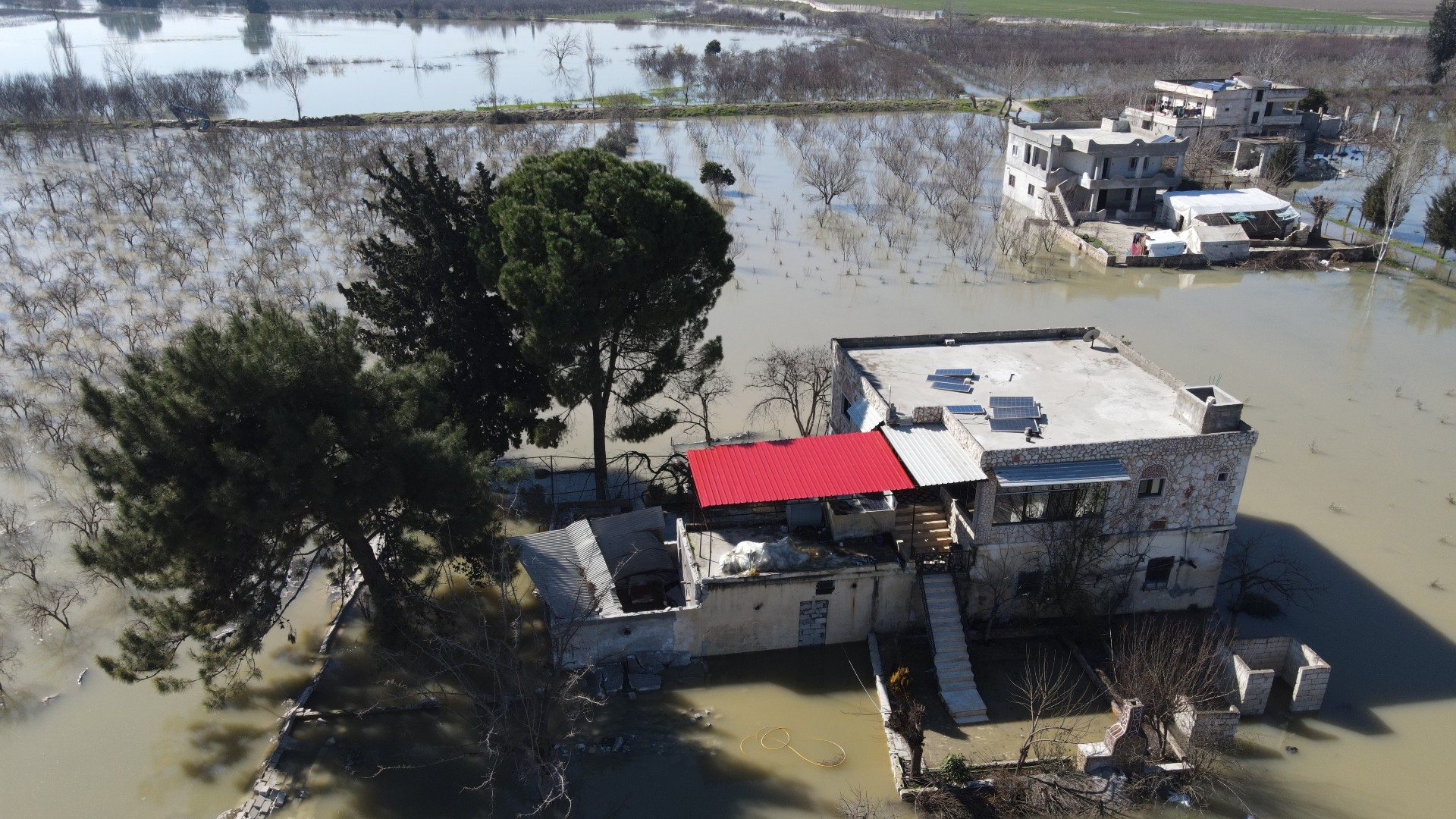
Al-Taloul, Idlib province - Around this time of year, the wheat crops in northern Syria are beginning to take shape, with farmers carefully tending to their yield ahead of the summer harvest.
But after a dam collapsed in northwest Syria following Monday's deadly earthquake, surging floodwater has wiped out thousands of acres of arable land making it impossible to salvage anything from this year's crop and raising fears over food security.
Residents in Idlib province's Al-Taloul village, which sits some 15km away from the Turkish border, told Middle East Eye that their prized wheat and bean fields were completely submerged after the nearby agricultural dam burst its banks.
Yasser, one of the displaced residents, said cracks first began to emerge in the dam a few days after Monday's powerful 7.8 magnitude quake which has now claimed as many as 30,000 lives in Turkey and more than 3,500 in Syria.
"We almost died under the roofs of our homes, and today we see our village drowning. What is happening in this area for God's sake?" he said.
The initial quake and thousands of subsequent aftershocks have wreaked new damage and suffering in Syria's last rebel-held enclave, which was already wrecked by years of fighting and bombardment, and was housing millions of displaced Syrians who had fled their homes during the country's civil war.
The region is home to around 4.4 million people, including more than two million who are internally displaced, according to UN figures. Almost 70 percent of the population are in acute need of humanitarian assistance.
"We do not know how to deal with these disasters. It is not the same death we have been accustomed to for 12 years with the air strikes of the Assad regime and Russia," Yasser added.
Agriculture is the primary source of income for many in the affected area, but farmers said high operational costs, weak purchasing power of the local market and difficulties in exporting across the border to Turkey had severely affected their trade.
"This is a great disaster," Basil Muhammad, an agricultural engineer, told MEE.
"All the crops have been destroyed. The dam was a source of watering for the people of the region, and after its collapse, they have lost the source of water that nourishes the agriculture," he added.
'We've lost everything'
Rescue teams in northern Syria have been swamped by the massive devastation brought on by the quake and have struggled to carry out relief efforts in remote parts of Idlib province.
Syria's White Helmets civil defence agency have said its volunteers have been "digging people out of the rubble with their bare hands" due to a lack of international aid, with the group adding it was "disappointed by the international community's response".
Rescue groups have estimates that at least 2,276 buildings may have collapsed in the rebel-held enclave, but have cautioned that it's difficult to measure whether damage to some of the buildings was caused by previous Syrian government and Russian shelling, or due to the quakes.
Speaking under an olive tree that survived because it was perched high atop a hill, Osama, who didn't share his last name, said he lost three hectares of land and feared how he would now support his family as aid was slow to trickle in from Turkey.
"It's difficult for us to comprehend the loss of our homes, but also our source of income," he told MEE.
"This crop was supposed to feed us and support us for the next year, but after it was flooded we've lost everything. We're now sitting under olive trees that do not belong to us without anything in this frozen weather."
Middle East Eye delivers independent and unrivalled coverage and analysis of the Middle East, North Africa and beyond. To learn more about republishing this content and the associated fees, please fill out this form. More about MEE can be found here.


